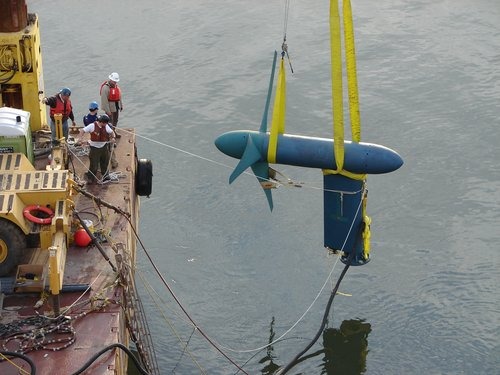
The University of Dundee has embarked on a major new project to investigate how wave energy generation systems can be anchored safely to the sea bed.
Wave power could make a significant contribution to the European renewable energy portfolio given vast wave energy resources along Europe’s western seaboard. Indeed the potential benefits of harnessing this energy are unparalleled anywhere else in the world raising the possibility that European companies could become global leaders in this particular sector.
However, wave energy systems currently suffer from significant challenges in that they need to be safely anchored to the sea bed. Such obstacles represent technical and economic hurdles that need to be overcome if the wave energy sector is to succeed. This has made research in this area an overwhelming priority for the offshore renewable wave energy industry and it is this problem that has led Dundee University to launch the GeoWAVE project.
The research will be supported by a fund of €1.1million from the European Union FP7 programme and will also involve the University of Western Australia and University College Cork as well as a number of small-to-medium enterprises (SME’s) including Lloyds Register, Seaflex AB, Deep Sea Anchors, Wavebob Ltd and Cathie Associates.
“There is great potential for wave power to be a valuable source of renewable energy but if it is to be realised we have to make it robust and cost-effective,” said Dr Jonathan Knappett, Senior Lecturer in the School of Engineering, Physics and Mathematics at the University of Dundee, who is co-ordinating the project. “One of the big challenges facing the industry is how wave energy convertors can be safely attached or anchored to the sea bed. Currently this accounts for around one-third of the production costs of convertors. That cost needs to come down if they are to be used within a fully commercial wave farm. If we can reduce the costs associated with station-keeping, then it will go a long way to making wave power an energy source that we can harness more effectively.”
GeoWAVE will conduct industry-specific research on a variety of new generation offshore anchors and mooring components deemed to be suitable for mooring wave energy devices. The intention is to enable wave devices to be widely deployed on a commercial scale generating new business opportunities while also potentially providing solutions for other offshore installations such as floating platforms for offshore wind turbines. The team will use complementary methodologies such as numerical, analytical and experimental modelling in association with field trials in order to further understand responses of mooring systems and develop design solutions for the wave energy sector.
Further information:

